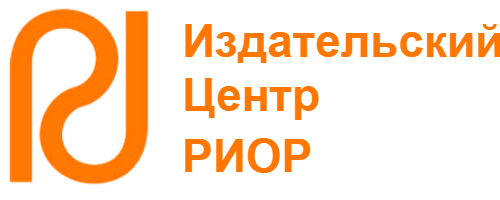UDC 34
Russian Library and Bibliographic Classification 67
The article deals with issues related to the problem of correctly determining the goal and setting tasks by the employees of the People’s Police of the Socialist Republic of Vietnam as part of the investigation of a criminal case of fraud. The author conducts a general analysis and draws some conclusions.
goal, task, crime investigation, criminal case, fraud, people’s police, Socialist Republic of Vietnam
In recent years in Vietnam, the state of fraud is an acute problem, this kind of crime tends to increase, with very sophisticated and well-prepared ways and tricks, and also caused very serious consequences for society. The practice of investigating fraud shows that there are still many limitations and shortcomings in the process of investigating this crime. In many cases, the investigators were not properly informed and did not pay due attention to the investigative activities. In this regard, a number of problems arise, such as: lack of evidence of a crime, a perpetrator or certain circumstances of the case; collected evidence does not meet the requirements of the law (evidence is not objective, relevant, legal), which reduce or lose their probative value. The investigation of criminal cases in general and the investigation of fraud in particular are investigative activities of the investigating authorities and authorities entrusted with carrying out certain investigative activities in accordance with the law. Determined, carried out in accordance with the criminal procedure, in order to prove the truth of the case in accordance with the requirements of the law. The investigation of a criminal case on fraud is an independent stage of the criminal process, serving the general goal of the criminal process, which is to quickly and accurately detect justice, the timeliness of all fraud, in order to prevent a crime, and not unjustly innocent people. During the investigation of a criminal case on fraud, the investigating authorities may apply only the measures and technical means provided for by law. During the investigation of a criminal case of fraud, it is to prove the truth of the case in accordance with the requirements of the law, namely: • First: to prove the fact of fraud, including: whether there was fraud or not; the time and place of the fraud; criminal acts (actions to create trust; deceitful actions of criminals in order to steal property ...); relationship between the accused and the victim; method and mechanism of crimes; the consequences caused by the criminal act, etc. • Second: collect evidence about the criminals, namely: Who committed the crime; personal characteristics of the subject before, during and after the commission of the crime; the presence of accomplices or not; the role, position of each accused; guilt, motive and purpose of the crime; ways of committing crimes; objects, tools, means and papers used by the offender during the crime; a place to hide, destroy or hide stolen property, etc. • Third: Collection of evidence related to the victim: Who are the victims in the criminal case of fraud; the identity and personal characteristics of the victims; the relationship of the victim with the accused; the reasons and goals for the transfer of property by the criminal; what property of the victim was stolen; methods that the victim knows in fraud. The specific tasks of the fraud investigation are determined on the basis of the provisions of the Criminal Procedure Code of the Socialist Republic of Vietnam and the Law on the Organization of Investigative Bodies, namely: • In the first: quickly solve a criminal case of fraud. Article 15 of the 2015 Code of Criminal Procedure states: “Responsibility for proving a crime rests with the body authorized to conduct proceedings. The accused has the right, but not the obligation, to prove his innocence.
Within the framework of their powers, the bodies authorized to conduct legal proceedings must apply measures in accordance with the requirements of the law for an objective, comprehensive and complete proof of the truth in the case and clarify the evidence”. • Secondly: compilation of materials and transfer to the prosecutor’s office. In particular, if the investigation is completed, but the investigating authority is already collecting sufficient evidence to determine the event of the crime and the criminal act of the accused, it must urgently draw up an indictment and transfer it to the prosecutor’s office. • Third: to create favorable conditions for the prosecution and trial of the case. In the course of the investigation, the investigator must pay attention to solving the problems associated with the case in order to create favorable conditions for the consideration of the case. According to the provisions of the law, the Court must directly determine the circumstances of the case, interrogate the accused, victims, civil plaintiffs, civil defendants, persons with interests, obligations related to the case, witnesses, experts, examine the evidence. • Fourth: Providing reparations. To protect the interests of the state, the legitimate interests of public organizations and citizens, it is necessary to solve an equally important task that must be solved when investigating a case of fraud, that is, to provide compensation for damage. • Fifth: Finding out the causes and conditions of crime and suggesting measures to prevent similar cases did not occur in the future. The specific goals and objectives of the investigation of criminal cases in general and fraud cases in particular are outlined above. These goals and objectives are connected with each other organically and inextricably.
1. The Criminal Procedure Code of the Socialist Republic of Vietnam. 2015.
2. The Criminal Code of the Socialist Republic of Vietnam. 2015.
3. Joint Circular № 01/2017 / TTLT-BCA-BQP-BTC-BNN & PTNT-VKSNDTC “On the organization of reception, registration and verification of crime reports”.
4. Law № 99/2015 / QH13 “On the Organization of Investigative Action”.




